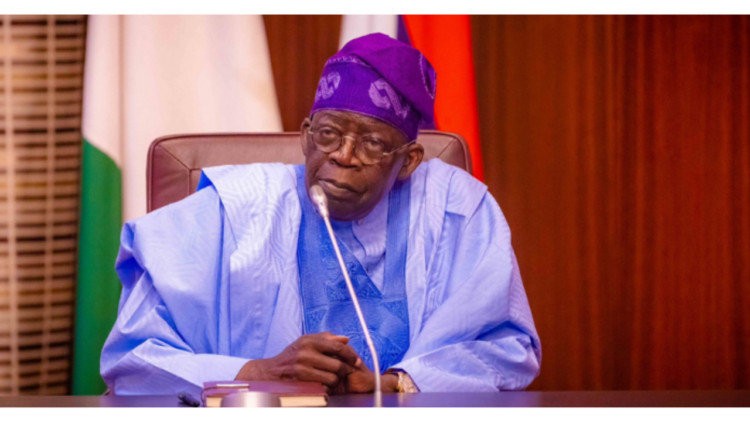Read in
In two months of the swearing in of President Bola Ahmed Tinubu, a number of tough and difficult policy decisions have been taken by his administration. Two of these are the removal fuel subsidies and the floating the naira. Inadvertently, these have translated in the short term to rising inflation rates, hike in fuel prices and lower purchasing power. Micro Small and Medium Enterprises (MSMEs) had already been faced with multiple challenges arising from the misadventure of the recent cash crunch occasioned by Naira redesign. With this recent development leading to higher cost of borrowing, the devaluation of the Naira, increased cost of goods and services, high foreign exchange rates, MSMEs are seeing reducing patronage of their services and struggling to stay afloat.
Micro Small and Medium Enterprises (MSMEs) are the engine room of any developing economy. Nigeria is home to over 36.9 million MSMEs, comprising 96.7% of all businesses in Nigeria. About 67% of these businesses are youth owned. Similarly, MSMEs contribute over 45% to the country’s gross domestic product (GDP), with 98.8% of them in the micro cadre. According to the Ministry of Industry, Trade, and Investment MSME enterprises in Nigeria also account for about 48.5 percent of the gross domestic product, GDP, as well as about 7.27 percent of goods and services exported out of the country.
Recently, Successory Nigeria Limited did a research to find out from MSMEs the impact of the recent subsidy removal on their businesses. The responses elicited shows that over 90% of the respondents confirmed that the fuel subsidy removal has negatively impacted on their businesses, increasing their costs. Only about 40% of the polled sample said that their businesses can survive following the subsidy removal. This is a reflection that Government policy such as the fuel price hike has a direct impact on MSMEs ability to pay taxes, contribute to the National GDP growth and also reduce unemployment if most of them stop operating due to the unfavourable business conditions. However, they agreed that the removal of subsidy was inevitable.
From the president’s recent speech, there’s clearly the need to support the MSME growth with the following immediate decisions to address them;
Strengthening the manufacturing sector, increasing its capacity to expand and create good paying jobs by spending N75 billion between July 2023 and March 2024 to fund 75 enterprises with great potential to kick-start sustainable economic growth, accelerate structural transformation and improve productivity with access to N1 Billion credit at 9% interest rate per annum with maximum of 60 months repayment for long term loans and 12 months for working capital.
Energising MSMEs with N125 billion out of which N50 billion is to be spent on Conditional Grant to 1 million nano businesses between now and March 2024.
Agriculture and food security was also a major focus as the President has ordered the release of 200,000 Metric Tonnes of grains from strategic reserves to households across the 36 states and FCT to moderate prices. There are also plans to provide 225,000 metric tonnes of fertilizer, seedlings and other inputs to farmers. Mr President also shared plans to support the cultivation of 500,000 hectares of farmland; N200 billion out of the N500 billion approved by the National Assembly with N50 billion to cultivate 150,000 hectares of rice and maize. N50 billion will also be earmarked to cultivate 100,000 hectares of wheat and cassava.
However, there are more steps to be taken.
Government should also provide incentives to encourage local manufacturing of green energy which is a major expense for businesses at the moment.
Microfinance Banks understand the communities and rural areas more than any other Financial Institution in the country. They should be the major disbursement channels for the nano grants to SMEs. We propose that NIRSAL MFB be given the mandate for wholesale lending to qualified Microfinance Banks and supervise disbursements through their State and Local Government Officers.
According to the UN and other development agencies, Nigeria should have strategic grain reserves of a minimum of 3.5million MT and from recent figures Nigeria does not have up to that. This means that the disbursement of grains requires immediate stock up. The current conflict between Russia and Ukraine is not abating. Insecurity in certain regions is the major reason why farmers are not cultivating.
Digital Technology should be leveraged on for the conditional grants. This will help drive financial inclusion by using available mobile money technology at little or no cost to the beneficiaries thus reducing the risk of diversion.
A strong monitoring process should also be put in place to ensure that these palliatives get to those who need them most and excessive bureaucracy does not slow down full implementation.
It is hoped that the President’s immediate, mid-term and long-term plans to alleviate the current economic stress on Nigerians is well thought out. The Strategic Framework for Implementation to effectively carry this out should be clearly articulated to guarantee its success. The erstwhile Project Monitoring, Reporting and Remediation Offices (PMROs) established in the 36 States and the FCT by NIRSAL Plc should be a veritable extension services outlet to support these laudable Presidential Initiatives.



